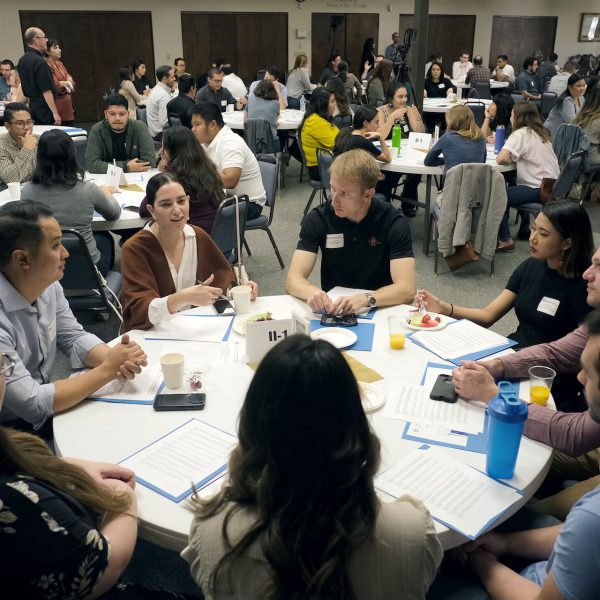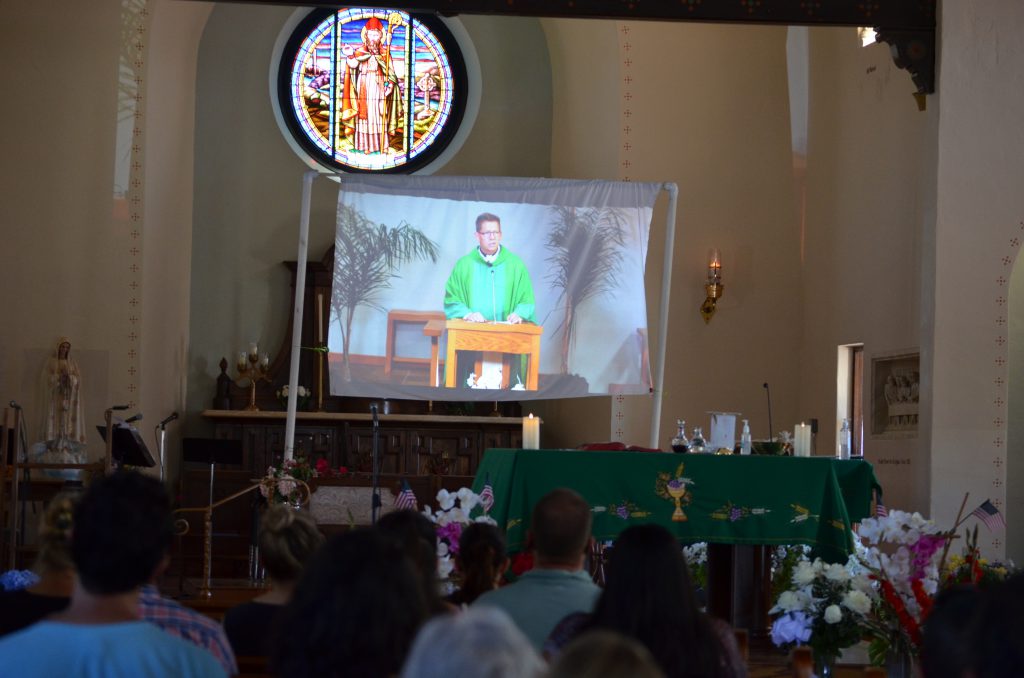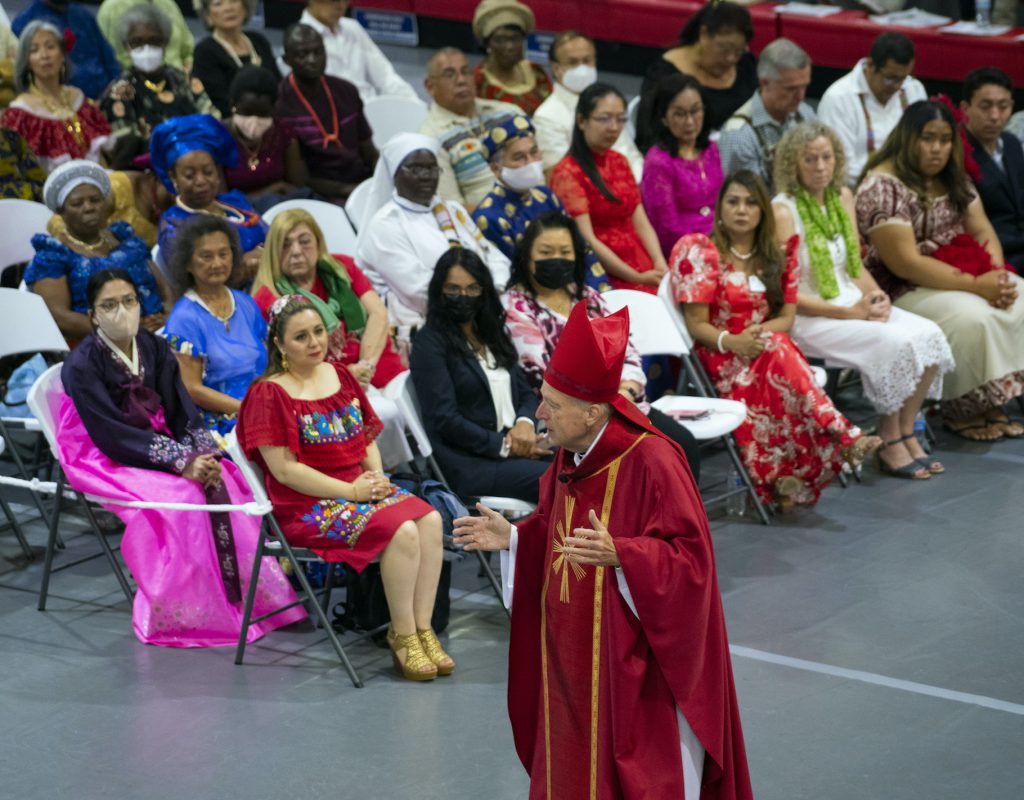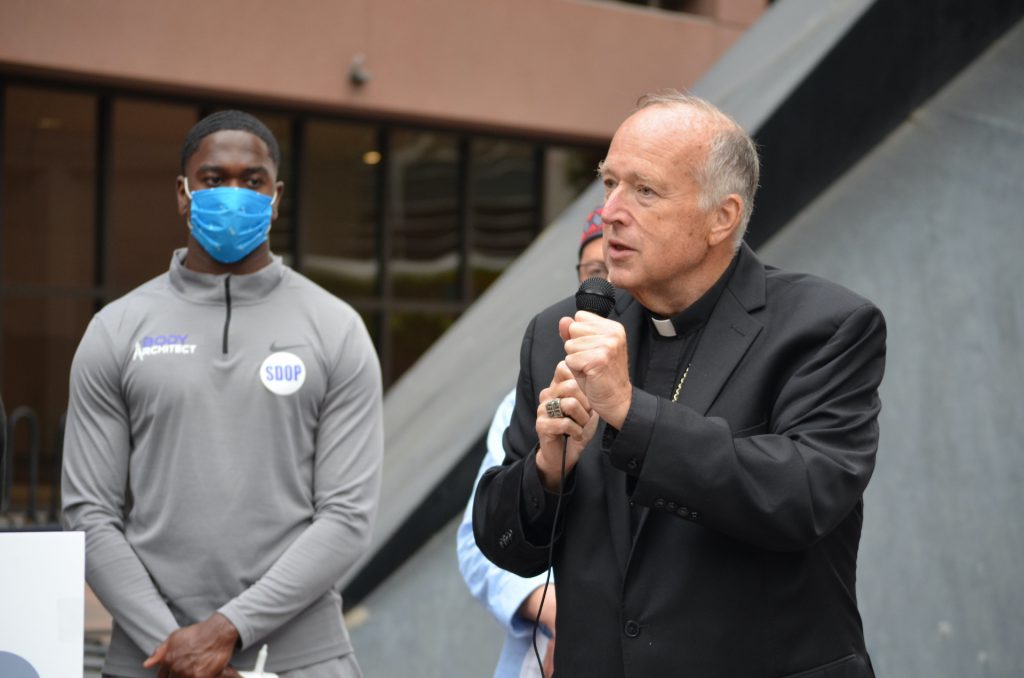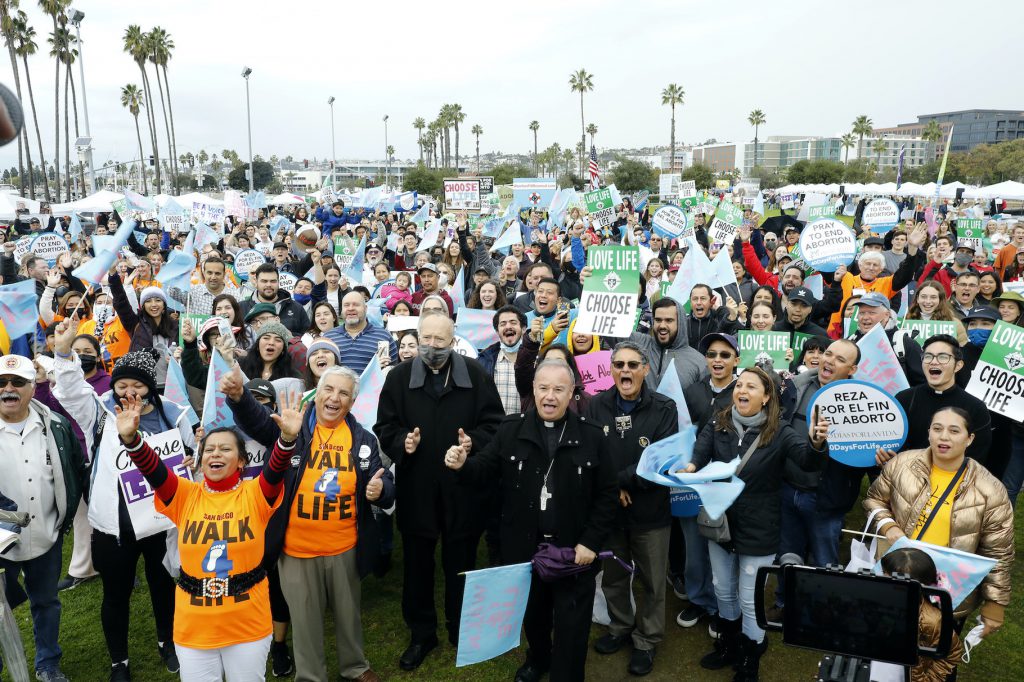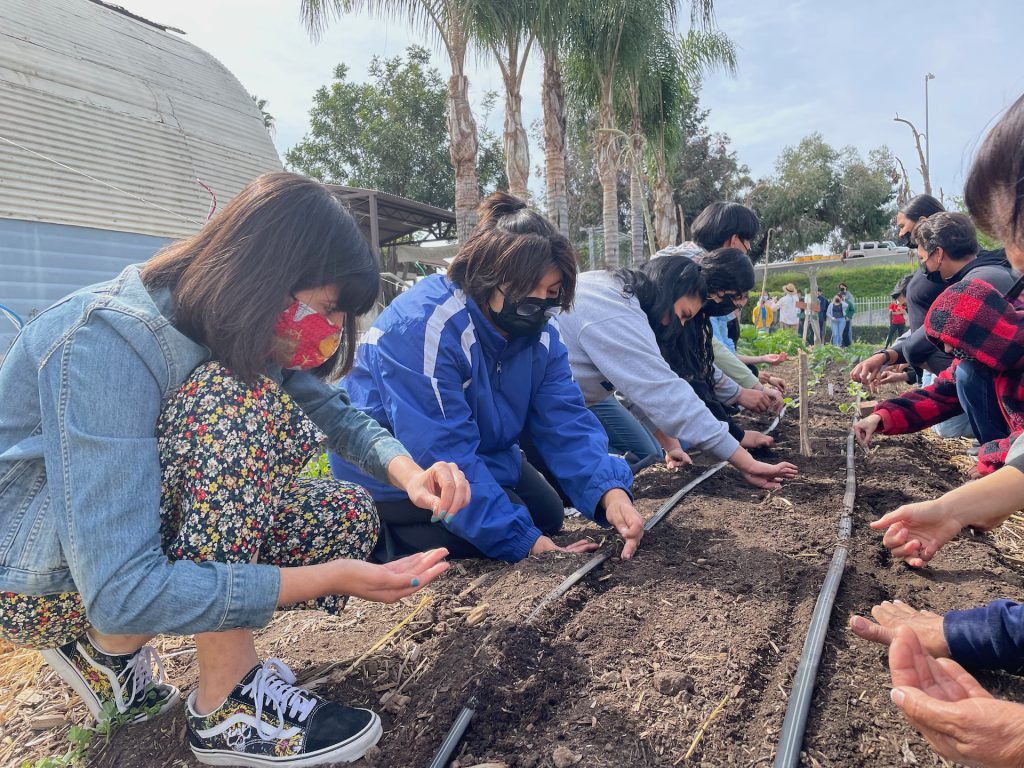SAN DIEGO — Participants in the Diocese of San Diego’s Young Adult Synod were encouraged to “dream big” as they came up with proposals for how the Church might better accompany them on their spiritual journeys.
And those dreams are already becoming reality.
Scarcely two weeks after the synod dele- gates made their recommendations, Bishop Robert W. McElroy accepted them all, appending three proposals of his own to the list of 30, and promised that the implementation process would begin immediately.
The synod proposals were solemnly present- ed to Bishop McElroy on six scrolls during the synod’s closing assembly, which was held Nov. 9 at Mission San Diego de Alcala. During the assembly, he expressed his hope that this might be “a great moment of fruitful grace and God’s presence in our Local Church, in which we will see the ideas and the proposals in these scrolls today become a reality.”
The 133 synod delegates who voted on the sweeping proposals during an Oct. 26- 27 general assembly were present for this final session, along with the many other young adults who had also taken part in the synod process, as well as members of the diocesan Priests’ Council, which has pledged its support for the proposals.
Many of the proposals came with implementation deadlines set by the young adult delegates themselves; most are to be achieved within the next two years. Among the proposals were calls for each geographical cluster of parishes, or deanery, to better accommodate young adults by scheduling Masses and confession times on weekday evenings; the development of a more effective communication strategy to keep young adults apprised of events and opportunities throughout the diocese; and for each parish to add a line item to its budget for young adult ministry.
As he accepted the delegates’ proposals, Bishop McElroy also issued a few of his own: that, by the end of 2022, young adults will fill 25 percent of the liturgical and leadership roles at each of the diocese’s 97 parishes; that the bishop will appoint the same percentage of young adults to various boards and commissions at the diocesan level; and that, by the end of January 2020, each of the diocese’s seven deaneries would convene a young adult leadership team parish in the deanery.
Paulist Father John Hurley, diocesan synod coordinator, told The Southern Cross that the median age of synod participants was 26. He said this synod process had allowed the Local Church to listen to the “prophetic” voice of some of its younger members.
Ana Zavala, a delegate from Nativity Parish in Rancho Santa Fe, was among those who saw the value of this unique diocesan gathering at which it was young adults themselves who diagnosed the shortcomings of young adult ministry and proposed solutions.
“I was actually really excited once I was there [at the general assembly] and I realized what it could mean for our diocese,” said Zavala, 30, adding that it filled her with hope “to see so many people who love the Church, and who want to make it grow, and want to bring the Good News to everybody.”
Jacquelyn O’Neill, a 26-year-old delegate from The Immaculata Parish, told The Southern Cross that young adults are “thirsty for truth and purpose,” longing for “some- thing that is grounded and unchanging, when everything around us is changing at a rate we can barely keep up with.” She said that all synod participants seemed to be “excited and proud to be a part of such a monumental conversation that was so closely related to our lives.”
The diocese’s Young Adult Synod, titled “Christ Lives! A Time of Dreams & Decisions,” was inspired by Pope Francis’ apostolic exhortation, “Christus vivit” (“Christ Is Alive”), which was published in 2019. In that document, the pope reflected on the insights that had come from the Synod of Bishops on Young People, the Faith and Vocational Discernment, which had been held the previous year at the Vatican, and he proposed ways to more effectively reach out to younger generations.
San Diego’s Young Adult Synod represented Bishop McElroy’s desire “to take up Pope Francis’ apostolic exhortation … and to bring that to the Local Church,” explained Father Hurley.
In doing so, he said, San Diego became the first U.S. diocese known to have held a synod on the pastoral needs of young adults — an issue of tremendous importance, given sobering statistics that reveal a growing number of young adults are disaffiliating from religious practice.
“Young adults are not so much the future of the Church; they are the now,” said Diocesan Chancellor Maria Olivia Galván, a key member of the diocesan synod core team, “and if we are losing them because of something the Church isn’t doing, then the time has come for a renewed focus on this essential demographic.”
After about six months of planning, the first phase of the diocesan synod kicked off with a series of gatherings, held from Sept. 7-Oct. 13, one in each of the seven deaneries. Each deanery parish sent one young adult delegate and three additional young adult representatives to participate.
Altogether, more than 230 young adults took part in these regional gatherings.
At the synod gatherings, the young adults reflected on five themes: Walking with God (evaluating their spiritual and personal relationship with God), Walking with the Church (assessing their perception of the Catholic Church today), Walking in Solidarity (exploring how they are welcomed and accompanied in their parishes), Walking with Purpose (exploring their calling and purpose in life by assessing their leadership, their sense of social service and making a difference in life as a Christian), and Walking towards Freedom (exploring the elements of Christian freedom).
The proposals that emerged from the deanery sessions were collated and presented to delegates at the general assembly, the second phase of the synod process, for further discussion and ultimately a vote.
The 25 proposals from the general assembly were officially accepted by the bishop at the Nov. 9 final session along with five additional proposals from an Oct. 24 convening of young adult teachers and administrators from the local Catholic school community.
In addition to the parishes, other Catholic entities were also invited to send delegates to the synod. These included Catholic Charities; the African-American, Chinese, Filipino and Korean Catholic communities; and St. Francis de Sales House of Priestly Formation, which was represented by 12 diocesan seminarians.
For Patrick Rivera, director of the diocesan Office for Young Adult Ministry, the synod helped “to get a gauge on where the young adults are in our diocese, how effective we are in actually reaching them, and how much they know about what we’re already doing, and how we can do it better.”
Rivera said the synod was a “humbling” experience for his office because, while many of the suggestions brought up by the young adult participants are addressed by events that his office already sponsors, it also became evident that the office needed to do a better job of spreading the word about those events.
The diocesan synod core team, which will oversee implementation of the proposals, will meet monthly. Their first meeting was Nov. 8. Team members include Galván and representatives of the diocesan offices for Young Adult Ministry; Family Life and Spirituality; Youth Ministry; Schools; and Life, Peace and Justice; as well as the Diocesan Institute, the Priests’ Council and Catholic Charities. Father Hurley will facilitate the implementation process and work closely with the team.
Galván said that, as the proposals are implemented over the coming months, she hopes that young adults will recognize the Local Church’s desire to do whatever it can “to embrace them with all of the gifts that they have to offer.”
Huliana Poyrazoglu, a delegate for the Filipino Catholic Community, said that she personally left the synod’s general assembly feeling “empowered to do more.”
But whether the synod’s proposals ultimately bear fruit, she said, will depend in large part on whether young adults are willing to accept what the diocese is now offering them in terms of increased opportunities for faith formation, sacramental reception and service projects, and to take ownership of their own spiritual development.
Just as young adults can no longer expect to have their meals cooked for them and set in front of them at dinner time as was the case when they were children, Poyrazoglu said, the same is true with regard to spiritual matters.
“If we’re hungry and we want more,” she said, “we have to go out and get it ourselves.”

